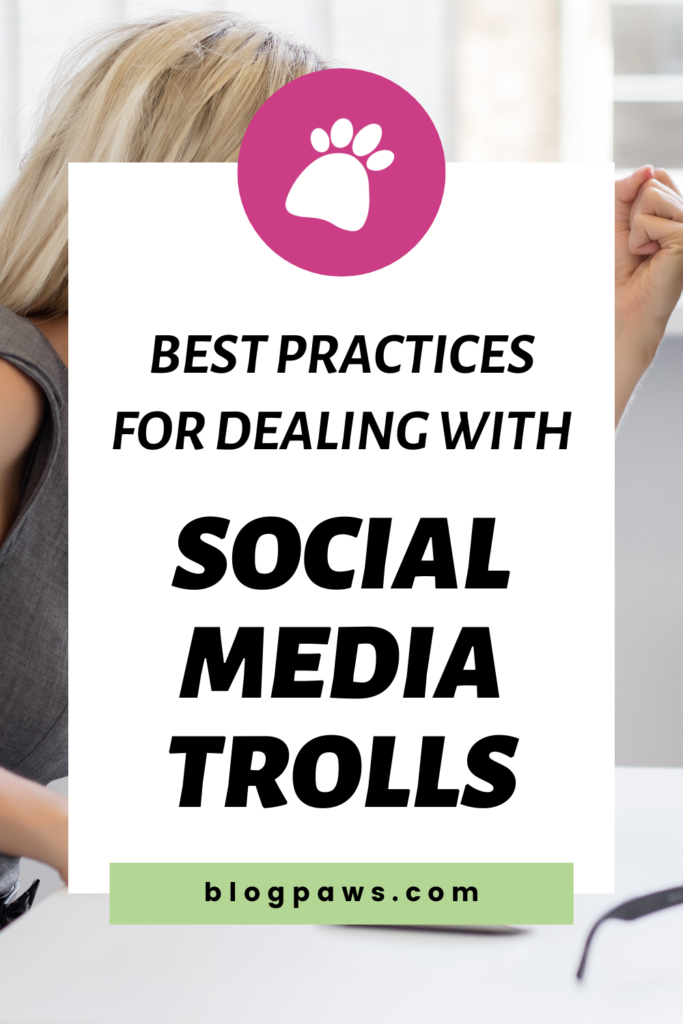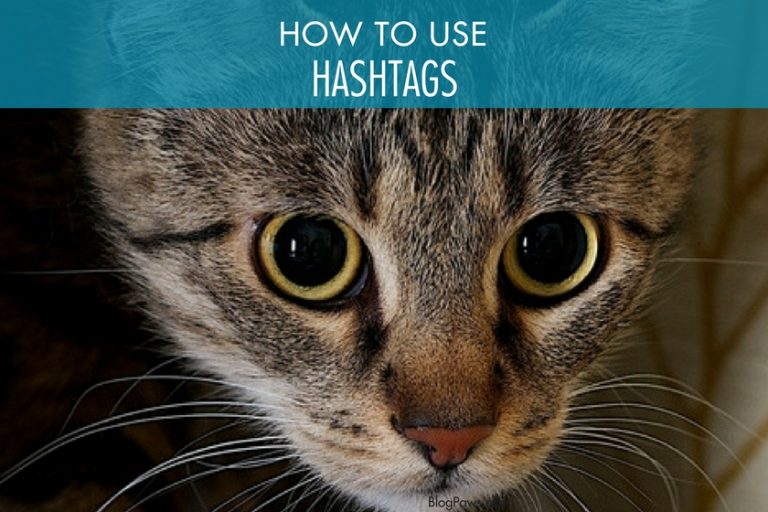Best Practices For Dealing With Social Media Trolls
Social media offers small pet business owners an incredible opportunity to connect with their ideal audience, raise brand awareness, and open the line of communication with both current and potential customers. Most small business owners fall into the trap of believing they need to address every message or comment they receive, thanking those who take the time to share a compliment, address and resolve complaints, and provide a knowledgeable answer to every question. However, this fails to address one specific group of people – Social Media Trolls.

How to Spot an Internet Troll
Before we get into the details of how to deal with trolls on social media, let’s start at the beginning. How do you know that you are dealing with an internet troll? What is an internet troll anyway?
The internet provides us with a unique opportunity to connect and engage with people and businesses worldwide. However, it also creates a sense of anonymity as users can shield their identity online and hide behind their computer screens. As a result, many users have chosen to take this opportunity to share harassing, harmful, or attacking comments. Why? They feel empowered to do this, knowing there is no fear of repercussions.
‘Trolling’ is a slang term that has become increasingly common. While there are many different definitions of this phenomenon, some examples of trolling on social media include:
- Posting random, unsolicited negative comments
- Sharing negative messages in a Facebook group with the intent of triggering a negative emotional response
- Starting unnecessary debates or online arguments
- Threatening to “dox” people (share private identifying information)
- Pointing out every little error, even if it’s irrelevant
- Threatening you or others (including those involved in your business and random followers)
While there is no foolproof way to prevent social media trolls from finding you or your business online, there are ways you can address the problem effectively, protecting your brand image and eliminating unnecessary negativity. We are sharing tips and guidelines to help you identify trolling behavior, manage it appropriately, and avoid negative attention where possible.
Address Social Media Trolls Confidently and Professionally with These Best Practices:
Don’t Give in to Negativity, Rise Above
It’s important to remember that getting sucked into the negativity or taking a troll’s comments personally will never end well for you or your brand. Instead, you need to step back and rise above the negativity.
If you don’t believe you can reply to the troll positively and professionally, avoid answering the comment entirely. There is nothing wrong with ignoring comments left by social media trolls. Engaging in an online disagreement will only paint your brand negatively, discouraging potential customers from wanting to get involved with you moving forward. If you aren’t sure if a reply would be seen as offensive, nasty, or negative, err on the side of caution and don’t post it.
Just as an individual can be an ‘internet troll,’ so can a brand or business. If you notice a competitor attacking you or posting negative comments regarding your business, don’t engage! A public battle on the internet will not benefit either brand at the end of the day, it’s a ‘no win’ situation. Your ability to remain respectful and walk away from unnecessary drama will show that you are a professional brand, one that should be trusted and respected.
One mistake that many businesses make is to take steps to erase the problem. Do not delete comments from trolls on social media. The only time the comments should be removed from your page is if they are highly offensive in some way (for example, any comments that are deemed racist). Removing comments will only land you in the middle of further drama as you are accused of censorship. Instead, promote open and honest conversation. Your potential clients are just as capable of spotting a troll as you are; trust them to formulate their opinions of your brand accordingly.
Stick to the Facts
If you find yourself engaging in a conversation that you’re worried may include an internet troll, be intentional with your responses. Avoid emotionally charged or defensive messages that may encourage further trolling behavior. Instead, take a moment to step away and clear your mind. Limit yourself to responding solely with the facts. Answer any direct questions with the truth about your product or service. Don’t sugar-coat it.
Where applicable, share customer service policies or guarantees that your business offers. In many cases, the facts alone disprove a troll’s claim and encourage them to move on.
If a concern is raised about your product or service, come out ahead of the problem. Respond promptly and professionally, showing that you are aware there is a problem and are addressing it accordingly. Transparency about how you are handling issues can go a long way, both in discouraging trolls but also in retaining your loyal customers.

Limit ‘No Win’ Engagement
Occasionally a comment from a troll may present itself in a way that appears to be a legitimate complaint or concern in the beginning. In an effort to address the problem, you reply, only to find yourself suddenly in the middle of unnecessary drama. The important thing here is to know when to walk away.
If a conversation is going nowhere positive, politely excuse yourself. For example, if you try to handle a complaint but find nothing will satisfy the person, you may be dealing with a troll. In this case, they often continue to complain and escalate with concerns, making the situation increasingly worse.
Continuing to engage with a troll will only create a more significant problem, so it’s essential to know when to draw the line.
As trolls aren’t actually looking for a resolution, the fact that you have responded to their complaint may be enough for them to move on to another brand’s accounts. However, if you’ve tried to resolve the situation a couple of times and can see that there will be no happy agreement, it’s likely in your best interests to ignore any future posts or messages.
Try Humor to Alleviate the Situation
While this isn’t always going to work and shouldn’t be a standard ‘go-to’ response, many situations involving trolls are best handled with humor. However, be sure to stick with tactful, professional humor. Your replies are still a reflection of your business.
As we previously discussed, when a troll is targeting your business online, they are trying to trigger responses that convey anger or frustration. It is for this reason that a humor-based response is so effective. This doesn’t mean you must entirely disregard what the troll has said or asked. Suppose there is a valid question or concern wrapped up in their message. In that case, this is an excellent way to both acknowledge their concern, apologize if warranted, and diffuse the situation simultaneously.
If the troll’s comment is unimportant or doesn’t warrant a serious response (for example, if all they wrote was ‘I hate your product’), a funny yet respectful response will help end the conversation while showing that you’re easy-going and approachable. This can help to encourage others to reach out to you if they have a reasonable complaint that needs to be addressed. Remember, be tactful and professional with your response, or you can paint your brand negatively.
Put Rules in Place to Protect your Community
Your social media followers are your community, and this is a group that you want to protect, nurture and encourage. The best way to do this is to put policies in place to keep them safe from the unnecessary negativity social media trolls introduce.
Consider putting a commenting policy in place on your social media platforms, and in any groups you may be maintaining for your community, such as Facebook groups. Each social media platform provides your followers with options to report abusive or ‘trolling’ comments if they should see them; however, you shouldn’t rely solely on your followers to identify this behavior. If you don’t currently have the time to monitor your social media accounts for trolls, ensure that you have moderators in place that are trained on your policies and prepared to act on your behalf.
Final Thoughts About Social Media Trolls and Your Social Media Accounts
While it can be frustrating and even overwhelming dealing with online trolls, your ability to handle the situation with professionalism and grace can reflect positively on your brand. By choosing not to give in to the negativity, you can show your customers and potential customers that they can trust you to remain cool, calm and collected in the face of a less-than-ideal situation. This helps to foster a feeling of trust.
Next time you find yourself ‘face to face’ with a troll, take a deep breath, collect your thoughts and respond using the above tips and tricks.
Do you have any policies or procedures in place with your small pet business to address social media trolls? Do you find these effective, or are you still trying new things to discover the best way to manage this negative behavior?
About the Author: Britt Kascjak, BlogPaws Director of Content & SEO, is an award-winning freelance writer whose background in digital and social media marketing spans 15+ years. She’s been a content creator in the pet industry for 9+ years with her own blogs: Shed Happens, The Kas Pack, and Lucifer the Rescue Pup where she shares her life and outdoor adventures with her 2 dogs and 3 cats. Read more…



